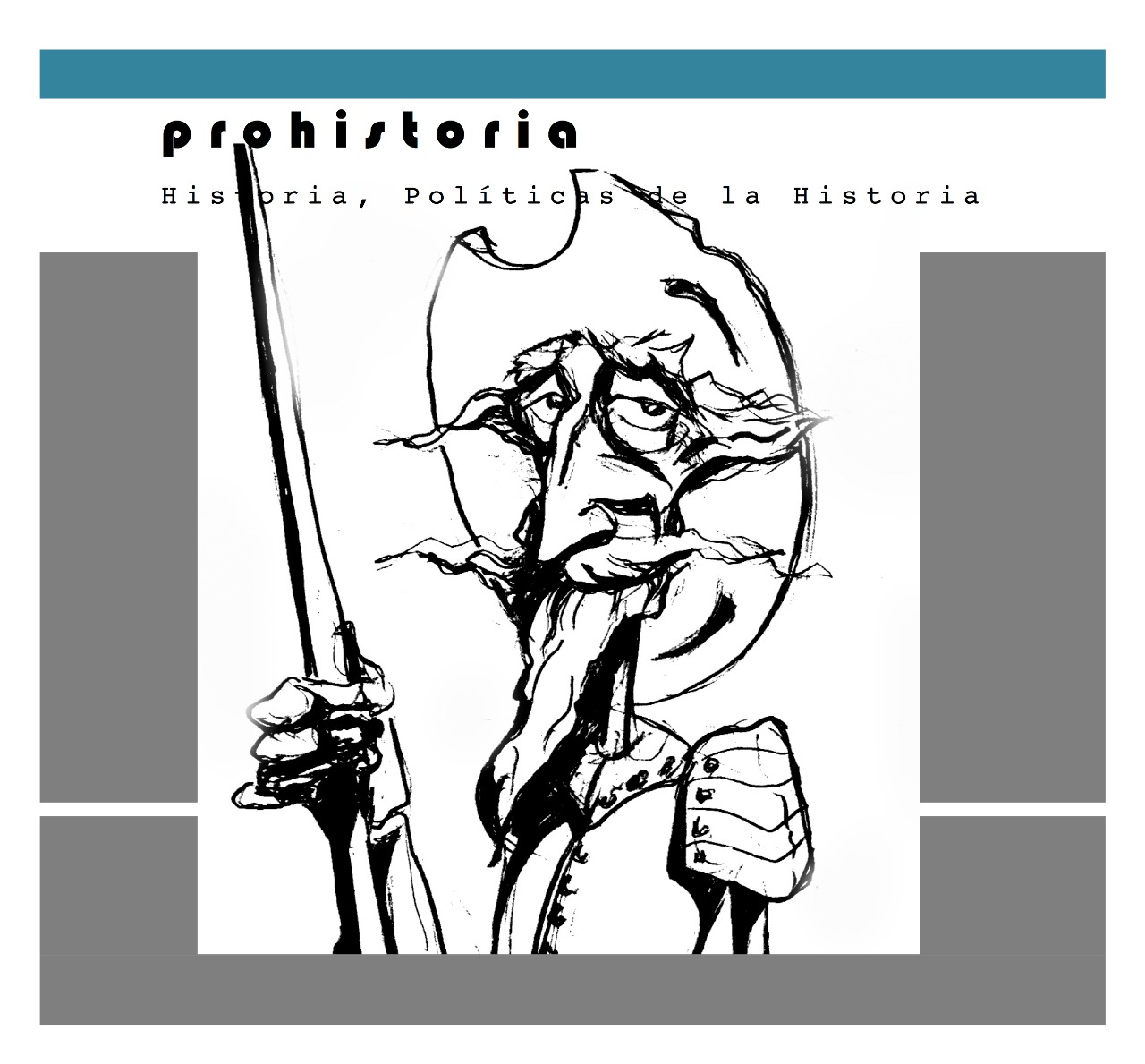The State as an artifact in the presence of other technologies
DOI:
https://doi.org/10.35305/prohistoria.vi40.1825Keywords:
State, Political Representation, Technology, Federalist , HobbesAbstract
Technological development has the peculiarity that previous technologies not only serve as a condition for the emergence of new ones, but often incorporate the new ones themselves. The question that motivates this work is whether the State considered as an artifact also has this connection with other technologies, particularly with digital ones. We will analyze the problem through the thought of Hobbes and the Federalist to conclude with some reflections on political representation in the face of the massification of digital technologies.
Downloads
References
Amar, A. R. (2012). America’s Constitution A Biography. Random House Publishing Group.
Bailyn, B. (2004). The Federalist Papers. En B. Bailyn, To begin the world anew: The genius and ambiguities of the American founders. Vintage Books.
Balzi, C. (2019). Introducción. Hobbes, T. Leviatán (pp. VII-CCVIII). Colihue.
Bobbio, Norberto (1992), Thomas Hobbes, Fondo de Cultura Económica.
Cipolla, C. M. (2010). Las máquinas del tiempo: Estudios sobre la génesis del capitalismo. Crítica.
Duso, G. (2002). Pacto social y forma política. G. Duso (Ed.), El contrato social en la filosofía política moderna (pp. 9-50). Leserwelt.
Gibson, A. (2019 Madison’s Republican Remedy: The Tenth Federalist and the Creation of an Impartial Republic. En J. N. Rakove & C. A. Sheehan (Eds.), The Cambridge companion to the Federalist. Cambridge University Press.
Grau, L. (2010). Nosotros, el Pueblo de los Estados Unidos. La Constitución de los Estados Unidos y sus enmiendas: 1787-1992. Universidad Carlos III.
Hamilton, A., Madison, J., Jay, J. (2008). The Federalist papers. Oxford University Press.
Hamilton, A., Madison, J., Jay, J. (2015). El Federalista. Akal.
Hobbes, T, (2010). Elementos filosóficos. Del ciudadano. Hydra.
Hobbes, T. (2012). Leviathan. Clarendon Press.
Hobbes, T. (2019). Leviatán. Colihue.
Hobsbawm, E. J. (1998a). Industria e imperio. Ariel
Hobsbawm, E. J. (1998b). La era del capital, 1848-1875. Crítica.
Koselleck, R. (2004). Futures past: On the semantics of historical time. Columbia University Press.
Mayr, O. (2012). Autoridad, libertad y maquinaria automática en la primera modernidad europea. Acantilado.
Schatzberg, E. (2018). Technology: Critical history of a concept. The University of Chicago Press.
Siemers, D. J. (2019). Publius and the Anti-Federalists: “A Satisfactory Answer to all the Objections”? En J. N. Rakove & C. A. Sheehan (Eds.), The Cambridge companion to the Federalist. Cambridge University Press.
Skinner, Q. (2003). El nacimiento del Estado. Editorial Gorla.
Tricaud, F. (1988). Hobbes’s Conception of the State of Nature from 1640 to 1651: Evolution and Ambiguities. G. A. J. Rogers, A. Ryan (Ed.), Perspectives on Thomas Hobbes (pp. 107-123). Clarendon Press.
Wood, G. S. (1998). The creation of the American Republic, 1776-1787. University of North Carolina Press.
Zarka, Yves Charles (1997), Hobbes y el pensamiento político moderno. Herder.
Published
How to Cite
Issue
Section
License
Copyright (c) 2023 Diego Zavalia

This work is licensed under a Creative Commons Attribution-NonCommercial-ShareAlike 4.0 International License.
- Authors retain copyright and grant the journal right of first publication with the work simultaneously licensed under Creative Commons Attribution 4.0 International License.
- Authors are able to enter into separate, additional contractual arrangements for the non-exclusive distribution of the journal's published version of the work (e.g., post it to an institutional repository or publish it in a book), with an acknowledgement of its initial publication in this journal.
Copyright of this issue © Prohistoria. Historia, políticas de la historia



















